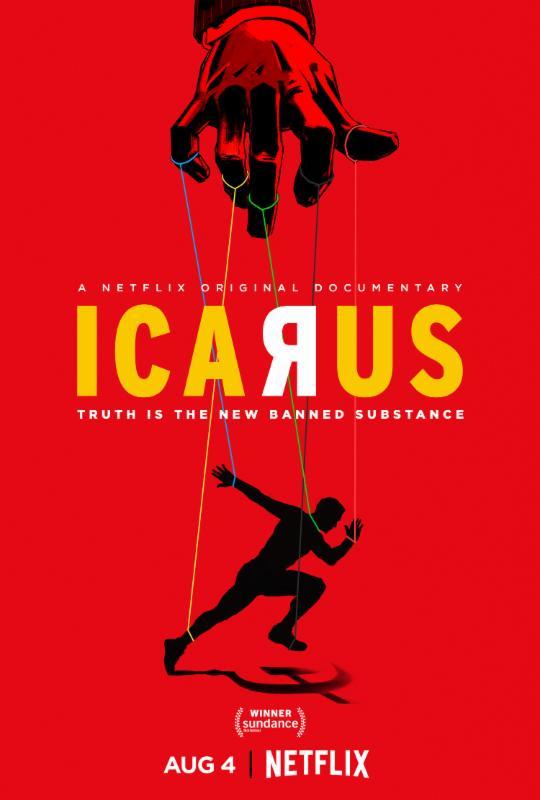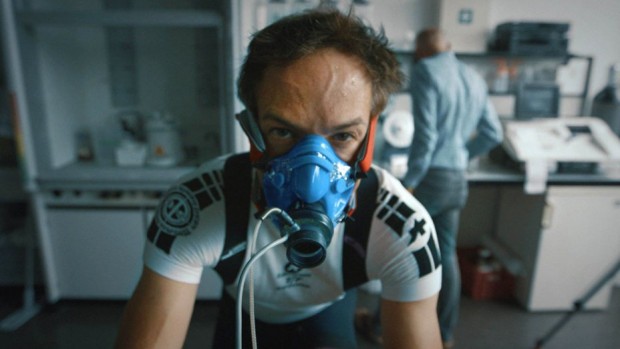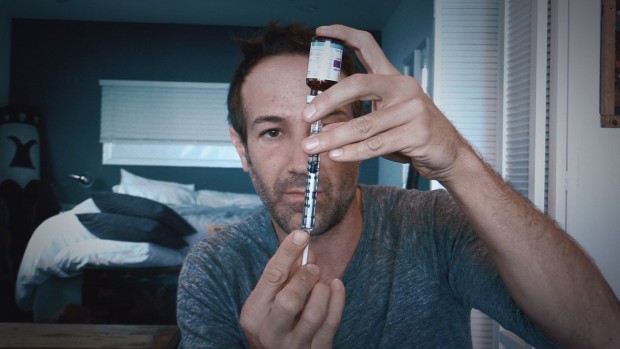By Glenn Dunks
 It is easy to see why Netflix purchased Icarus for a record five-million dollars. Charting director-and-subject Bryan Fogel’s attempts to prove how easily it is for athletes to dope and how easy it is to get away with it before getting sucked into the Russian Olympic doping scandal of 2015, it’s a premise that swings between two wildly popular forms of documentary. But blending the personality theatrics of Morgan Spurlock’s Super Size Me with true crime, Icarus ultimately isn’t able to replicate the entertainment and the sheer chutzpah of that 2004 perfect storm of charming lead and grotesquely captivating experiment.
It is easy to see why Netflix purchased Icarus for a record five-million dollars. Charting director-and-subject Bryan Fogel’s attempts to prove how easily it is for athletes to dope and how easy it is to get away with it before getting sucked into the Russian Olympic doping scandal of 2015, it’s a premise that swings between two wildly popular forms of documentary. But blending the personality theatrics of Morgan Spurlock’s Super Size Me with true crime, Icarus ultimately isn’t able to replicate the entertainment and the sheer chutzpah of that 2004 perfect storm of charming lead and grotesquely captivating experiment.
For starters, Fogel greatly overestimates the desire to watch somebody screw the system and (attempt to) get away with it. After all, we live in a world with Lance Armstrong already in it – and it takes Icarus just 58 seconds to feature him in archival sound and video – so there seems little need for a talented, but self-admitted amateur cyclist to muddy the waters and prove how scandalous it all is...
Blame it on the steroids perhaps, but by the time he is actively helping the Russian doping expert, one really does have to question his motives.

Secondly, Fogel is simply not a very interesting person to spend 110 minutes with. While there is an occasional likability to him that suggests he’d be good company over a beer at the pub, evidenced by a rapid spike in personality when conversing face-to-face with other people, as the central focus of the film – at least through Icarus’ first half – that none the less doesn’t make him much of an interesting subject on screen. His narration and to-camera testimonials are often bland and lack any particularly insightful introspection and in some home videos he literally just tells us what we can see him doing.
Most damaging, however, is how wildly out of depth he proves himself to be behind the camera. While there is some admitted amusement to be had in witnessing his grizzled face attempt to comprehend the twists that are unfolding in those very moments, his bamboozlement behind the camera is less endearing. When the shit hits the fan, whatever rhythms Icarus had going for it disintegrate and the film is left spinning its wheels (cycling pun unintended) through some of the most rote documentary filmmaking I’ve seen all year.

With a seemingly endless music score and little eye for composition beyond its initially well-staged cycling sequences, there is little here to suggest that the director, whose only prior work was a 2012 romantic comedy starring Tom Arnold called Jewtopia, is more at home in the realm of non-fiction. The near two minutes of “where are they now” title cards that conclude the movie have more ripe drama in them than Fogle’s doping experiment, which takes up far too much of the runtime for something that ultimately fizzles from the narrative. Remove the narrative twist from Icarus and there is little here beyond a bad movie being interrupted by an interesting story that is then bungled some more.
Release: Streaming now on Netflix.
Oscar Chances: I think it has a big chance even though I am not a fan. It is topical, but isn’t just another film about how mad Russia is, which will allow it to stand out when the branch is being asked to decide between, for instance, a dozen films about race and a dozen films about Syria and a dozen films about modern politics. But as I say with all of these Netflix documentaries, it all depends on what they put their weight behind because they have so many.